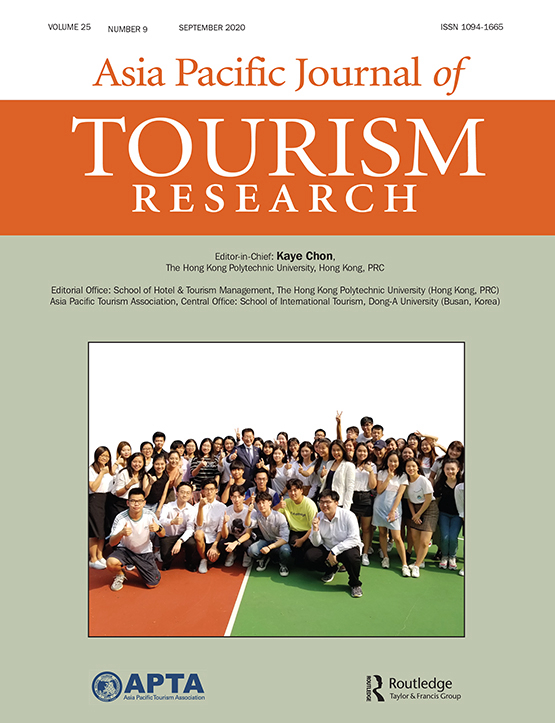Regional tourism demand forecasting with spatiotemporal interactions: a multivariate decomposition deep learning model
IF 3.3
3区 管理学
Q1 HOSPITALITY, LEISURE, SPORT & TOURISM
引用次数: 0
Abstract
ABSTRACTWith the advancement of economic globalization and regional integration, regional tourism flows are more closely linked, which provides new clues for improving forecasting. This study develops a multivariate decomposition deep learning model to forecast tourism demand by capturing spatiotemporal interactions among regional tourism flows. The multivariate decomposition technique is introduced to reduce data complexity, while convolutional neural networks and long short-term memory networks are extracting spatial and temporal correlations of regional tourism flows. The effectiveness of the model is demonstrated in two heterogeneous international tourism cases of tourist arrivals from China or Japan to leading destinations in Southeast Asia.KEYWORDS: Regional tourism demand forecastinginternational tourist arrivalsspatiotemporal interactionsmultivariate decompositiondeep learningsoutheast Asia Disclosure statementNo potential conflict of interest was reported by the author(s).Additional informationFundingThis work was supported by China Scholarship Council: [Grant Number 202206280175, 202206280179]; National Key Research and Development Program of China: [Grant Number 2022YFF0903000]; National Natural Science Foundation of China: [Grant Number No. 72101197]; Natural Science Basic Research Program of Shaanxi Province: [Grant Number 2023-JC-QN-0785]; Science and Technology Project of China Huaneng: [Grant Number HNKJ20-H87]; National Natural Science Foundation of China: [Grant Number No. 71774130].基于时空交互作用的区域旅游需求预测:一个多元分解深度学习模型
摘要随着经济全球化和区域一体化的推进,区域旅游流量之间的联系更加紧密,这为改进预测提供了新的线索。本研究建立多元分解深度学习模型,通过捕捉区域旅游流之间的时空相互作用来预测旅游需求。引入多元分解技术降低数据复杂度,利用卷积神经网络和长短期记忆网络提取区域旅游流的时空相关性。该模型的有效性在两个异质性国际旅游案例中得到了验证,即来自中国或日本的游客到达东南亚主要目的地。关键词:区域旅游需求预测;国际游客到达;时空相互作用;多元分解;深度学习;本研究由中国国家留学基金委资助:[资助号:202206280175,202206280179];国家重点研发计划项目[批准号2022YFF0903000];国家自然科学基金项目[批准号:72101197];陕西省自然科学基础研究计划项目[批准号2023-JC-QN-0785];中国华能科技计划项目[批准号HNKJ20-H87];国家自然科学基金项目:[批准号:71774130]。
本文章由计算机程序翻译,如有差异,请以英文原文为准。
求助全文
约1分钟内获得全文
求助全文
来源期刊

Asia Pacific Journal of Tourism Research
HOSPITALITY, LEISURE, SPORT & TOURISM-
CiteScore
6.80
自引率
4.00%
发文量
31
期刊介绍:
Asia Pacific Journal of Tourism Research is the official journal of the Asia Pacific Tourism Association (Founded September 1995) and seeks to publish both empirically and theoretically based articles which advance and foster knowledge of tourism as it relates to the Asia Pacific region. The Journal welcomes submissions of full length articles and critical reviews on major issues with relevance to tourism in the Asia Pacific region.
 求助内容:
求助内容: 应助结果提醒方式:
应助结果提醒方式:


